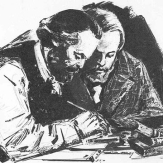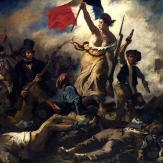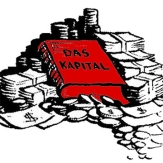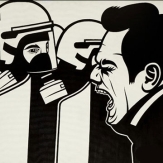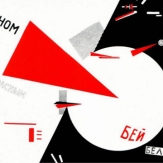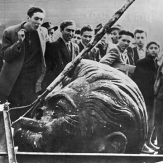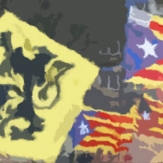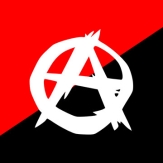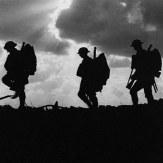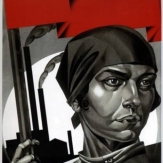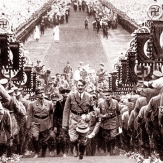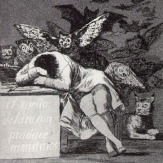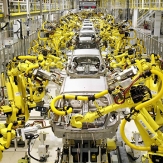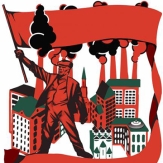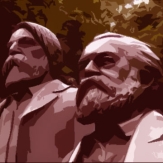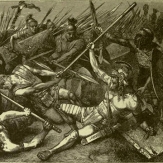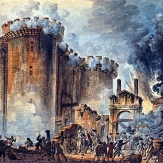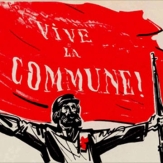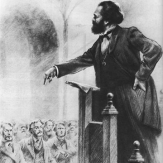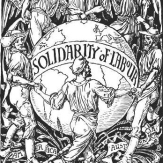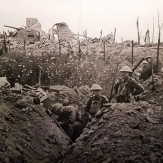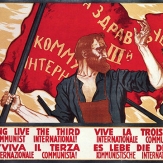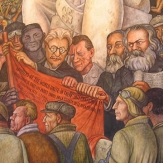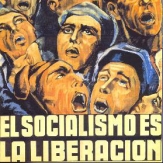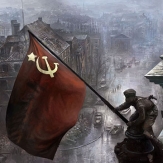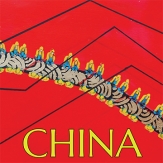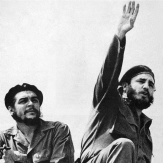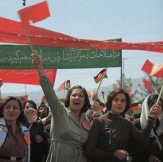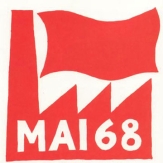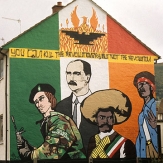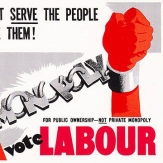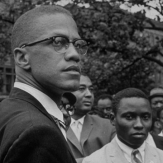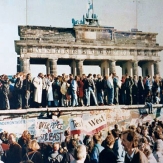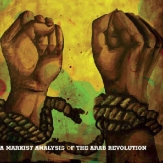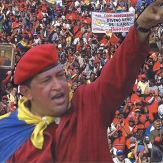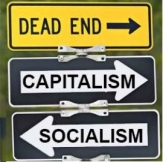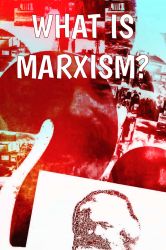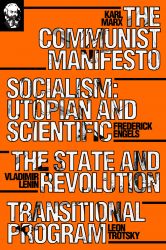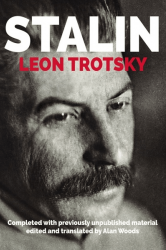[Source]
Het regime reageerde met harde repressie: het heeft de toegang tot het internet afgesloten en bijna al zijn veiligheidstroepen gemobiliseerd: de politie, counterinsurgency-eenheden, de Revolutionaire [lees: contrarevolutionaire] Garde en basij-paramilitairen. Deze strijdkrachten van het regime schieten steeds openlijker op de menigte, met al meer dan 100 bevestigde doden. Het werkelijke aantal ligt waarschijnlijk drie tot vijf keer hoger, met nog eens honderden gearresteerden en gewonden.
In reactie daarop hebben de demonstranten zich verdedigd. Op donderdag dreven demonstranten in Teheran gewapend met stokken en metalen staven de veiligheidstroepen weg, om vervolgens het kantoor van de openbare aanklager te bestormen, waardoor ambtenaren en veiligheidstroepen in angst moesten vluchten. In Qeshm, zoals in vele andere steden, bestormden donderdagavond demonstranten het kantoor van de vrijdagse imam en staken het in brand. Een demonstrant riep daarbij:
"Jullie hebben het volk 40 jaar lang gemarteld - dit is het resultaat."
De protesten zijn het hevigst in Teheran en de omliggende voorsteden, hoewel deze gebieden het zwaarst worden onderdrukt, met een hevige campagne om revolutionaire studenten te arresteren. Dit heeft de demonstranten alleen maar aangemoedigd. Vrijdag hebben demonstranten op klaarlichte dag afbeeldingen van Ayatollah Khamaneni voor zijn eigen huis verbrand. Als reactie op de harde repressie is het gebruik van molotovcocktails in Teheran gemeengoed geworden.
De zweep van de reactie
Vanaf het begin van deze beweging is het regime bijna volledig overrompeld. We zagen dit in de Koerdische stad Sandanj, waar het regime woensdagavond de staat van beleg afkondigde en de beweging onderdrukte, maar waar donderdagavond drommen jongeren de straat opgingen, alle barrières voor de controle van de menigte doorbraken en de veiligheidstroepen verdreven.
In Teheran en omgeving worden de protesten uiteengedreven, om vervolgens in een ander deel van de stad opnieuw te beginnen. Het lukt het regime niet om de steeds militantere jeugd tegen te houden. We zien ditzelfde patroon in heel Iran, waarbij repressie door het regime de protesten in een ander deel van dezelfde stad alleen maar aanwakkert: soms binnen enkele uren, soms bijna onmiddellijk.
Omdat het regime de demonstranten niet rechtstreeks kon aanpakken, zag het zich gedwongen zijn veiligheidstroepen in burgerkleding te hullen. Zelfs dit heeft een averechts effect gehad: demonstranten bevrijdden arrestanten die door veiligheidsagenten in burgerkleding waren opgepakt, omsingelden de veiligheidstroepen en sloegen hen tegen de grond.
Zelfs het arresteren van geïdentificeerde demonstranten in hun huizen wordt moeilijk. In Anzali bijvoorbeeld probeerden veiligheidstroepen jongeren te arresteren in hun ouderlijk huis, maar hun ouders en buren gooiden hen uit het gebouw.
Net als bij de jeugdprotesten in 1978, de opmaat tot de Iraanse revolutie van 1979, zijn de begrafenissen van de door de veiligheidstroepen gedode personen veranderd in militante bijeenkomsten, met toespraken waarin wordt opgeroepen tot de val van het regime.
Elke botsing, elke arrestatie en elke martelaar heeft de woede van de massa's alleen maar aangewakkerd. In één dag, van woensdag op donderdag, breidden de protesten zich uit naar nog eens 50 steden. Op dit moment zijn er geen steden meer over om zich te verspreiden, wat betekent dat de beweging zich verspreidt naar gemeenten en zelfs kleine dorpen!
De beweging mag niet verslagen worden: voor een algemene staking!
In Iran is sinds 2018 een periode van opstanden, constante stakingen en protesten aan de gang, maar de huidige beweging is grootschaliger en militanter dan alle voorgaande. Het bezetten en in brand steken van officiële gebouwen, terwijl veiligheidstroepen in bijna elke grote stad worden overweldigd, is een kwalitatieve sprong voorwaarts vergeleken met alles wat eerder is gezien. Dit zijn precies dezelfde methoden als tijdens de aanloop naar de Iraanse revolutie van 1979.
Ondanks de militante stemming van de jongeren in de voorhoede, zal, als deze beweging geïsoleerd blijft, het regime na verloop van tijd terrein winnen in een langdurige, bloedige strijd, die dagen of zelfs weken kan duren. Alleen de arbeidersklasse is, vanwege haar rol in de productie, in staat om de samenleving tot stilstand te brengen, het regime een halt toe te roepen en te voorkomen dat het de terreur ontketent die nodig is om zijn heerschappij te handhaven.
Hoewel veel van de onafhankelijke arbeidersorganisaties die zich in de afgelopen periode van strijd gevormd hebben verklaringen hebben afgelegd waarin zij zich solidair verklaren met de protesten, heeft helaas alleen de Workers of Tehran and Suburbs' Bus Company (die de buschauffeurs vertegenwoordigt) tot nu toe opgeroepen tot een algemene staking.
Het regime heeft de massa's niets anders te bieden dan de ergste vormen van onderdrukking, armoede en terreur. Er blijft dus maar één weg over voor de Iraanse arbeidersklasse: een niet aflatende politieke strijd tegen de Islamitische Republiek. De tijd van louter solidariteitsbetuigingen is al lang voorbij. De huidige situatie vereist niets minder dan een algemene staking om de verrotte Islamitische Republiek omver te werpen!
De arbeidersorganisaties moeten onmiddellijk de slogan van een algemene staking in alle sectoren van de economie naar voren brengen. Zij moeten oproepen tot de vorming van wijk-, school- en industrieraden om de leiding van deze strijd op een georganiseerde basis te leggen, die over het hele land moet worden veralgemeend.
Tegenover zo'n georganiseerde massabeweging zou de Islamitische Republiek volledig machteloos staan en als gevolg snel omvergeworpen worden.
Weg met de Islamitische Republiek! Weg met het kapitalisme!
De beweging stevent af op een beslissende krachtmeting met het regime, die de komende dagen zal plaatsvinden.
Ongeacht de uitkomst van de huidige opstand, eisen de massa's, en vooral de jongeren, de revolutionaire tradities van de Iraanse arbeidersbeweging weer op. Veel universiteiten hebben een revolutionaire studentengroep, geïnspireerd door de communistische organisaties van vóór 1979. Veel van deze groepen zijn vastberaden geweest in de aanhoudende protesten, maar hun taak is groter dan dat.
Revolutionaire Iraanse jongeren, geïnspireerd door de ideeën van het marxisme, moeten het meest vastberaden deel van de huidige beweging worden, door consequent op te roepen tot een algemene staking en arbeidersraden. Maar ze moeten ook geduldig uitleggen dat de enige weg vooruit de omverwerping van zowel de Islamitische Republiek als het Iraanse kapitalisme is.
Alle eisen uitgedrukt in de volksslogan "vrouwen, leven en vrijheid" - dat wil zeggen terugdraaien van de bezuinigingsmaatregelen; een leefbaar loon en fatsoenlijke pensioenen; het democratische recht om te staken, te protesteren en te vergaderen; legalisering van onafhankelijke vakbonden; en echte gelijkheid tussen de seksen - kunnen alleen worden gegarandeerd voor toekomstige generaties met de afschaffing van het kapitalisme.
De Iraanse kapitalistische gangsters hebben niets anders te bieden dan armoede en dictatuur. De val van de Islamitische Republiek moet de eerste stap worden in de machtsovername door de Iraanse arbeidersklasse. En om dit te bereiken is het noodzakelijk om te beginnen met de opbouw van een revolutionair leiderschap, gestaald in marxistische theorie, met een gedurfd programma voor de socialistische transformatie van de maatschappij.

